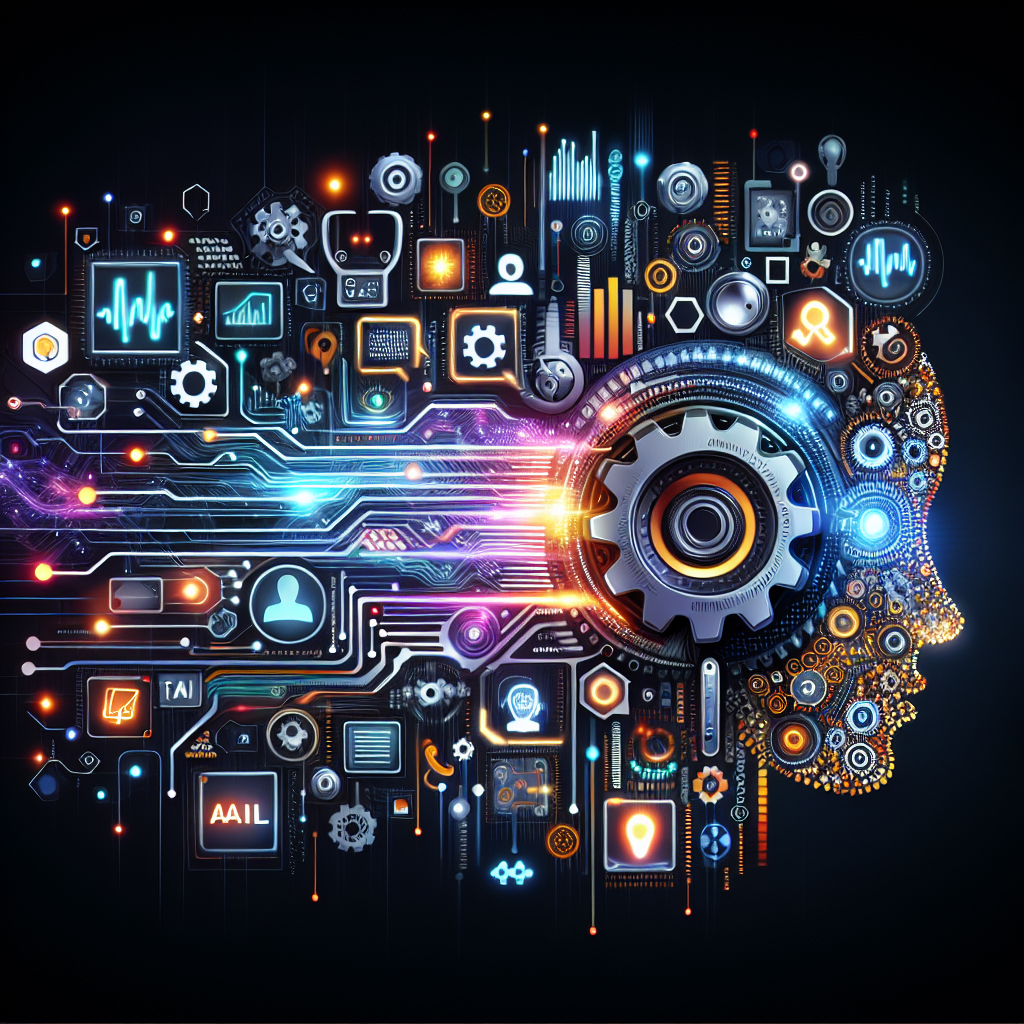In the digital era, customer service has become more important than ever. With the rise of online shopping and social media, customers have higher expectations than ever before when it comes to the level of service they receive. This has led to the emergence of new technologies and trends in customer service, with artificial intelligence (AI) playing a key role in reshaping customer service strategies.
AI has the potential to revolutionize the way companies interact with their customers by providing personalized, efficient, and responsive service. From chatbots to predictive analytics, AI technologies are enabling businesses to provide a more seamless and streamlined customer experience. In this article, we will explore how AI is reshaping customer service strategies for the digital era, as well as the key trends and technologies driving this transformation.
Trends in AI-Powered Customer Service
1. Chatbots and Virtual Assistants: One of the most popular applications of AI in customer service is the use of chatbots and virtual assistants. These AI-powered tools can handle common customer inquiries, provide personalized recommendations, and even complete transactions on behalf of customers. By leveraging natural language processing and machine learning, chatbots can provide a more efficient and responsive customer service experience.
2. Predictive Analytics: AI-powered predictive analytics can help businesses anticipate customer needs and preferences, allowing them to proactively address issues before they arise. By analyzing customer data and behavior patterns, businesses can tailor their marketing campaigns and customer service strategies to better meet the needs of their customers.
3. Personalization: AI technologies enable businesses to deliver personalized customer experiences at scale. By analyzing customer data, AI algorithms can provide personalized product recommendations, targeted marketing messages, and tailored customer service interactions. This level of personalization can help businesses build stronger relationships with their customers and increase customer loyalty.
4. Automation: AI-powered automation tools can streamline customer service processes, reducing the need for human intervention. From automated email responses to self-service portals, AI technologies can help businesses deliver more efficient and cost-effective customer service. By automating routine tasks, businesses can free up their customer service agents to focus on more complex issues and provide higher-quality service.
5. Omnichannel Support: AI technologies can help businesses provide seamless customer service across multiple channels, including email, social media, and chat. By integrating AI-powered tools with existing customer service platforms, businesses can provide a consistent and cohesive customer experience, regardless of the channel through which customers choose to interact.
Technologies Driving AI-Powered Customer Service
1. Natural Language Processing (NLP): NLP is a branch of AI that enables computers to understand, interpret, and generate human language. By leveraging NLP technologies, businesses can develop chatbots and virtual assistants that can engage with customers in natural language, providing a more intuitive and conversational customer service experience.
2. Machine Learning: Machine learning is a subset of AI that enables computers to learn from data and improve their performance over time. By training machine learning algorithms on customer data, businesses can develop predictive analytics models that can anticipate customer needs and preferences, enabling them to deliver more personalized and proactive customer service.
3. Sentiment Analysis: Sentiment analysis is a technique that uses AI to analyze customer feedback and determine the emotional tone of the text. By applying sentiment analysis to customer interactions, businesses can identify and address issues that may be causing dissatisfaction among customers, enabling them to improve the overall customer experience.
4. Voice Recognition: Voice recognition technologies enable businesses to provide hands-free customer service interactions through virtual assistants and voice-activated devices. By leveraging voice recognition technologies, businesses can offer a more convenient and accessible customer service experience, allowing customers to interact with businesses using their voice.
5. Robotic Process Automation (RPA): RPA is a technology that automates routine tasks by mimicking human interactions with software applications. By implementing RPA in customer service operations, businesses can automate repetitive tasks such as data entry and document processing, freeing up their customer service agents to focus on more complex and value-added activities.
FAQs
1. What are the benefits of AI-powered customer service?
AI-powered customer service offers several benefits, including increased efficiency, personalized interactions, predictive analytics, and automation of routine tasks. By leveraging AI technologies, businesses can deliver a more seamless and responsive customer service experience, resulting in higher customer satisfaction and loyalty.
2. How can businesses implement AI-powered customer service?
Businesses can implement AI-powered customer service by leveraging existing AI technologies and integrating them into their customer service operations. This may involve developing chatbots and virtual assistants, implementing predictive analytics models, and automating routine tasks using RPA. By partnering with AI vendors or hiring AI experts, businesses can develop and deploy AI-powered customer service solutions that meet their specific needs and objectives.
3. What are the challenges of AI-powered customer service?
While AI-powered customer service offers many benefits, it also presents several challenges. These may include data privacy concerns, ethical considerations, and the need for ongoing training and maintenance of AI systems. Businesses must carefully consider these challenges and develop strategies to address them in order to successfully implement AI-powered customer service.
4. How can businesses measure the success of AI-powered customer service?
Businesses can measure the success of AI-powered customer service by tracking key performance indicators (KPIs) such as customer satisfaction, response time, resolution rate, and customer retention. By analyzing these metrics, businesses can assess the impact of their AI-powered customer service initiatives and make data-driven decisions to optimize their customer service strategies.
In conclusion, AI is reshaping customer service strategies for the digital era by enabling businesses to deliver personalized, efficient, and responsive customer service experiences. By leveraging AI technologies such as chatbots, predictive analytics, and automation, businesses can provide a more seamless and streamlined customer service experience, resulting in higher customer satisfaction and loyalty. As AI continues to advance, businesses must stay ahead of the curve by embracing AI-powered customer service and leveraging the latest technologies and trends to meet the evolving needs of their customers.

